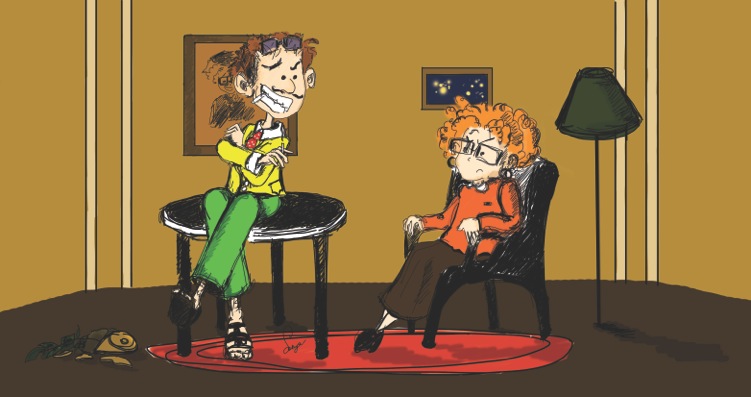In the back of your closet, you store a crisp white collared shirt reserved strictly for job interviews. Over time, you perfect that handshake you’ve been practicing, and you develop the ability to maintain eye contact without breaking away.
Fast forward a few months, and you’ll soon become a master of the job interview process. It’s important to note that one of the most crucial factors of conducting a flawless interview is in your body language. Although body language is a silent gesture, it speaks volumes.
“You always want to come across as prepared, confident, alert, friendly, and knowledgeable in any meeting with a prospective employer,” says Dianne Twombly, manager of career development at the Career Centre. “Good body language conveys all these things.”
Making sure that you produce well thought-out answers that catch the interviewer’s attention is only half the battle. During your meeting, it’s important that your body language parallels your verbal responses.
“Although you believe you are coming across as welcoming and professional, simple gestures such as crossing your arms over your chest, shifting in your seat, or playing with your jewellery can deliver the opposite message you wish to convey,” says Twombly.
“When the employer catches these body movements, you send the message that you are angry, uninterested, and nervous.”
Possible employers are always analyzing body language as cues to whether or not the applicant is the right person for the job.
Excalibur got in touch with Cristina Piccirillo, mortgage broker and owner of Dominion Lending Centres in Woodbridge. Piccirillo told us what she looks for when interviewing potential agents.
“A firm handshake shows confidence and will start your interview off well. Have you ever met someone that had a limp handshake? It leaves a lasting impression and it’s not the one you want,” says Piccirillo.
Eye contact is also a fundamental factor. It shows you are engaged in the conversation and are paying attention. Don’t look out the window or look down. This shows lack of self-esteem or lack of interest, she says.
Apart from maintaining body language during an interview, you must also be conscious of the language you use when engaging on various social media accounts. Job interviews no longer happen in 15 minutes within four walls.
Using social media, employers turn a face-to-face verbal interview into a virtual one.
All those tweets and late night Instagram party photos are no longer shared between you and your 300 followers, but to your potential boss as well.
Your social media profiles become reflections of you. They give the company an idea of who you are when you are not dressed in a white collared shirt to greet people with firm handshakes.
When asked about how she monitors her social media accounts, fourth-year individualized studies student Clivane Previlon says she frequently audits her online presence to make sure that it reveals an accurate representation of her personality.
“My online brand is an extension of my personal brand on the internet. You never know who can screenshot your tweet and have a copy of it long after it has been deleted,” says Previlon.
Even tweets made in high school can come back to haunt you by a quick search. So it is important that when employers stumble across your profile, accidentally or through a Google search, they find someone who they can picture representing their company, she says.
It’s not enough to be professional with your body language, you must also be careful with the language you use on social networks such as Facebook, Twitter, and Instagram.
Job interviews can be intense, but following these tips can alleviate some of the pressure.
When preparing for the big day, Twombly suggests practicing proper body language by engaging in mock interviews with friends or family, or by videotaping yourself so that you can judge your body language and its correlation with your verbal responses.
When it comes to your dialogue, Piccirillo suggests not to talk about salary right at the beginning of the interview. Conversing about salary and wages is reasonable, but find the right time to do it.
Piccirillo also warns against saying bad things about your former boss or company.
Keep gossip to yourself because it might give the impression that you’ll talk badly about the current company you’re being interviewed at.
Preparing for a job interview is not something you have to do alone. If you are nervous or need additional help, stop by York’s Career Centre.
They offer interview practice sessions, including one where a job advisor will conduct and videotape a mock interview with you and then send you a digital copy for your own evaluation.
Job interviews can be intense, but if you remember your firm handshake, a crisp white collared shirt, excellent body language, and your authentic social media presence, you will be sure to hear the words “you’re hired” in no time.
Cristina Maria Lupoi, Contributor
Featured image courtesy of Sonya Gritskevich




